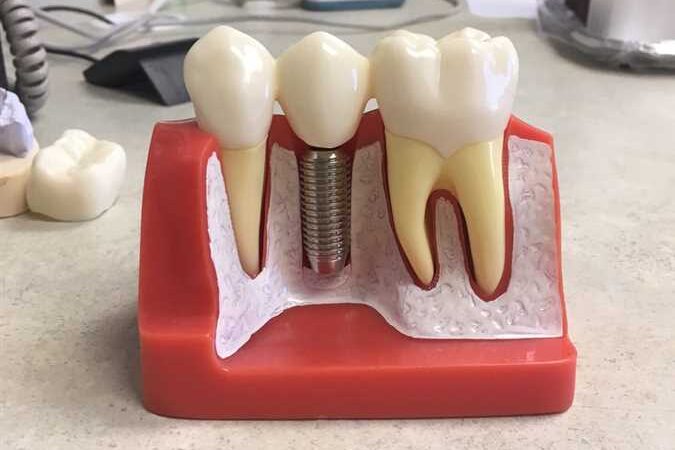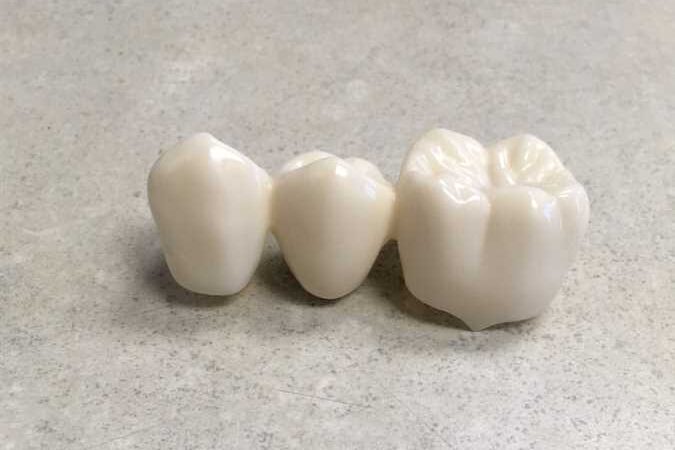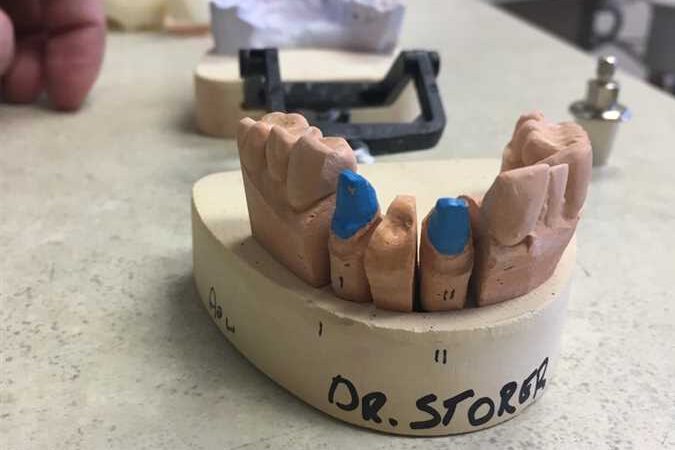An oral exam is routinely performed by the dentist during the course of an initial comprehensive exam and regular check-ups. An oral cancer exam refers to the identification and management of diseases pertaining to the maxillofacial and oral regions.
Family Dentistry Services
Oral Pathology
The soft tissue of the mouth is normally lined with mucosa, which is special type of skin that should appear smooth in texture and pink in color. Any alteration of the color or texture of the mucosa may signal the beginning of a pathologic process. These changes may occur on the face, neck, and areas of the mouth (e.g., gums, tongue, lips, etc.). The most serious of these pathologic changes (which may or may not be painful) is oral cancer, but there are also many other common pathologic problems.
- Geographic Tongue – Also known as Benign Migratory Glossitis or Erythema Migrans, is a condition where the tongue is missing papillae (small bumps) in different areas, and a map-like appearance can develop. This condition is usually seen as red well defined areas on or around the sides of the tongue. The red patches (which can look like an unsightly rash) may come and go from hours to months at a time and cause increased sensitivity to certain substances.
- Median Palatal Cyst – This cyst is of developmental origin and is essentially a fluid filled skin sac. It usually appears in the middle of the palate and may cause substantial discomfort.
- Hairy Tongue – An overgrowth of bacteria or a yeast infection in the mouth which can cause the tongue to appear hairy and black. This condition is usually a result of poor oral hygiene, chronic or extensive use of antibiotics, or radiation treatments to the head or neck. It is often also seen in HIV positive patients and those who are intravenous drug users. Hairy Tongue may or may not require treatment.
Treatment of Pathological Diseases
In the majority of cases, the pathological changes experienced in the oral region are uncomfortable and disfiguring, but not life threatening. However, oral cancer is on the rise (especially among men) and the chances of survival are around 80% if an immediate diagnosis is made.
Oral cancer is a general term used when referring to any type of cancer affecting the tongue, jaw, and lower cheek area. Since it is impossible for the dentist to decisively diagnose a pathological disease without taking a biopsy sample of the affected area, seeking immediate treatment when changes are first noticed might be a life and death decision. For less serious problems, there are several options available, such as:
- Antibiotics – In the case of a bacterial infection or persistent soreness, the dentist may prescribe a dose of antibiotics to return the mucosa to its natural state. This will alleviate soreness and discomfort.
- Diluted Hydrogen Peroxide – When poor oral hygiene is causing changes to the soft tissue, the dentist may prescribe a diluted hydrogen peroxide mouthwash. This will kill more bacteria than regular mouthwash and improve halitosis (bad breath).
- Oral Surgery – If the patient has cysts or abnormal non-cancerous growths, the dentist may decide to completely remove them. This can improve comfort levels, alleviate breathing problems, and make speech substantially easier depending on the location of the cyst.
Oral Examinations
During the course of a regular check up, the dentist will thoroughly inspect the soft tissue of the mouth and take serious note of any changes. If there are cell changes present, the dentist will take a biopsy of the affected area and send it away to be analyzed by laboratory specialists. When definitive results are obtained, the dentist can decide on the best course of treatment.
Oral Cancer Screenings
An oral cancer screening is usually performed during a comprehensive or recall (check-up) exam. Screening is painless and only takes a few minutes. The dentist or hygienist will use a laser light to assess the soft tissue for cell changes that might be indicative of oral cancer. If such cell changes are present, a small biopsy will be taken and sent to a laboratory for review. If the biopsy indicates that oral cancer is present, an excision (removal) will generally be performed.
If you are experiencing any pain or symptoms that cause you concern, we encourage you to contact us today to schedule an appointment.
Frequently Asked Questions
What is an oral cancer exam, and why is it important?
An oral cancer exam is part of a routine dental check-up, where your dentist inspects the soft tissues of your mouth, neck, and face for any abnormalities in color or texture that could indicate a pathological issue like oral cancer. Early detection is critical for successful treatment, as the survival rate for oral cancer is around 80% if diagnosed early.
What are some common pathological conditions affecting the oral region?
Common pathological conditions include geographic tongue (a map-like appearance with missing papillae), median palatal cysts (fluid-filled sacs that develop in the palate), and hairy tongue (a bacterial or yeast overgrowth). While many of these conditions are not life-threatening, prompt diagnosis and treatment can alleviate discomfort and prevent complications.
Effective, reliable treatments for patients of all ages.
No matter what your needs or goals for your smile may be, our dentists and teams are here to help. We look forward to meeting you and every member of your family and helping you take your first steps to better smiles.
Take some time to learn more about the services we provide at Petrie, Storer and Associates, D.D.S. When you are ready to schedule an appointment with our dentists, contact our dental offices in Chicago.
More Family Dentistry Services
Our experienced and caring team is dedicated to serving patients of all ages, from children to seniors, and providing top-notch oral health care for the entire family. We strive to make dental visits easy and stress-free for you and your loved ones. Our family-friendly atmosphere ensures that every member of your household feels comfortable and at ease during their dental appointments.
From routine check-ups and cleanings to preventive treatments like dental sealants and fluoride treatments, we prioritize preventive care to maintain healthy smiles for a lifetime. Should any dental concerns arise, our skilled dentists are equipped to deliver a wide range of services, including restorative treatments, cosmetic, and emergency dentistry.



